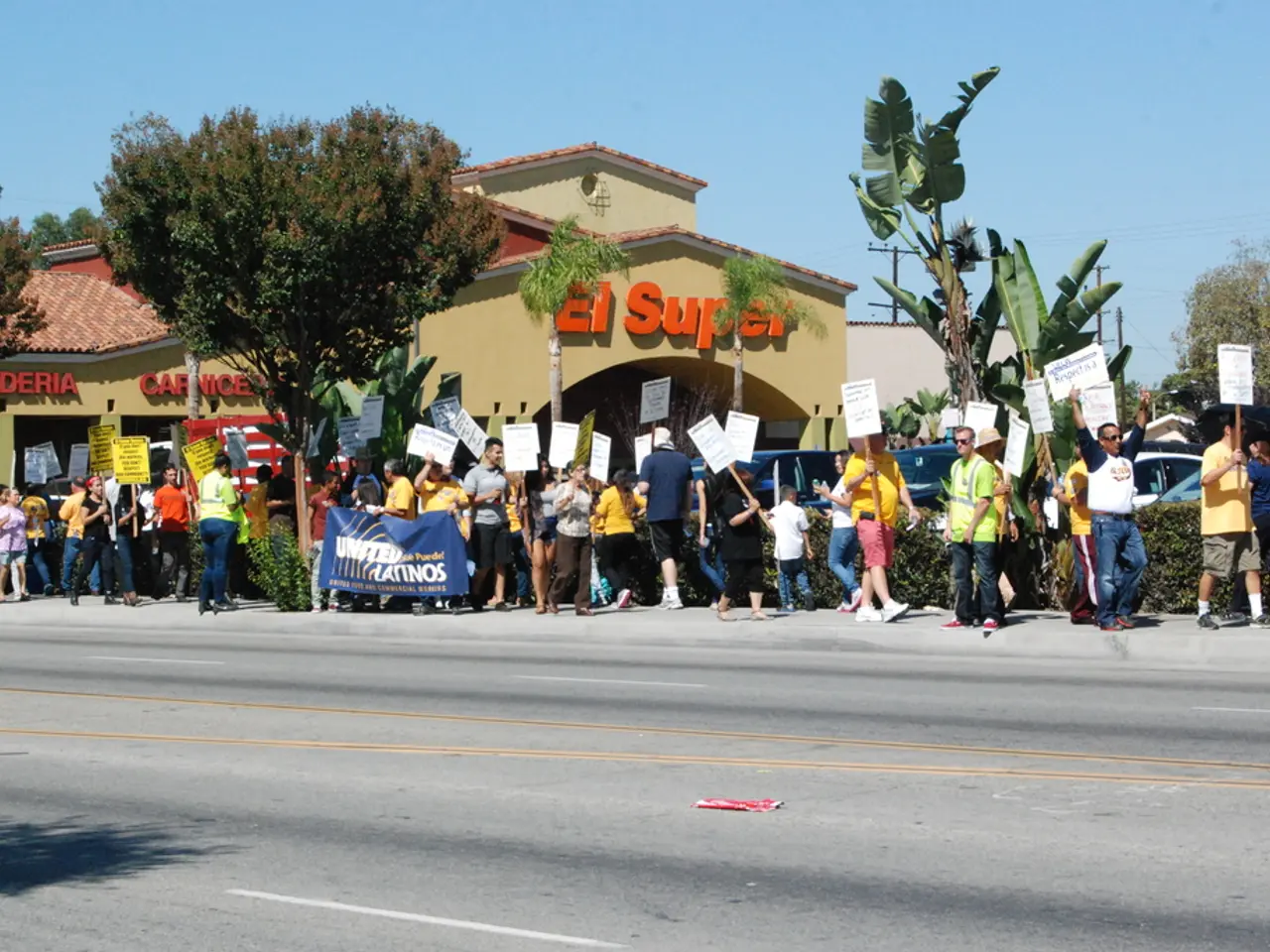A Critical Look at Thuringia's Migrant Detention Plan
An Informal Discussion on Legality and Effectiveness
Critical Evaluation of Deportation Detention Plan: Refugee Council's Perspective - Criticized Projects: Refugee Council Slams Deportation Initiatives
In Thuringia, Germany, the plan to establish a separate detention facility for migrants without residence permits has raised eyebrows. The Refugee Council raises concerns about potential legal violations, based on experiences from other federal states and a lack of legal knowledge in some local courts.
Frank Gockel, a representative of the federal association for supporting people in detention, expressed concerns about people being imprisoned contrary to the law in the proposed center. He warned about this risk based on observations from other federal states.
Juliane Kemnitz, project coordinator of the Refugee Council in Thuringia, expects that her organization will focus on advising people detained in Thuringia. She emphasized that each case would need to be evaluated individually to ensure that detention conditions meet the legal requirements.
Legal Perspective
Although the exact legal standards of the new detention facility in Thuringia remain unconfirmed, Germany's legal framework for detaining migrants involves strict guidelines to distinguish detention conditions from penal incarceration. For example, in Bavaria, pre-removal centers have imposed measures such as daily outdoor access and fewer visiting restrictions to provide humane conditions [2].
Effectiveness and Practicality
Thuringia's migrant accommodation system has been under pressure due to capacity issues, leading authorities to consider creative housing solutions. The creation of specialized detention facilities for migrants forms part of the state's strategy to manage housing and detention effectively. However, critics contend that such facilities might harshly treat migrants and jeopardize their legal protections and social integration, which could exacerbate rights issues [3].
Conclusion
While the legal framework for detaining migrants in Germany, including Thuringia, exists, the implementation of a separate detention facility must follow these standards to ensure the treatment of detainees is humane and protects vulnerable groups. The establishment of such a facility appears to address housing and administrative challenges, but its impact on human rights, security, and integration, as well as its legal compliance, is yet to be fully determined [1][2][3]. Keep an eye out for updates on the facility's operation and conditions to judge its effectiveness and legality.
- The controversial migration detention plan in Thuringia, Germany, has sparked debates in community policy circles, as concerns arise about potential legal violations and the impacts on the legality, rights, security, and integration of migrants undergoing vocational training.
- In the midst of political discussions about Thuringia's migrant detention plan, advocates for migrants emphasize the importance of vocational training programs for those in detention facilities, citing evidence that such programs can help promote social integration and stabilize migrants' livelihoods during their time in detention.






